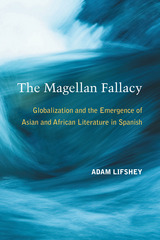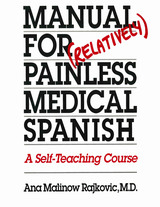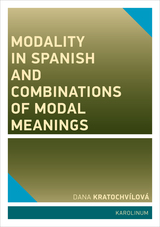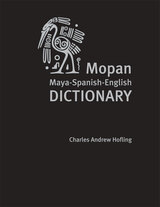6 start with M start with M

The Magellan Fallacy argues that literature in Spanish from Asia and Africa, though virtually unknown, reimagines the supposed centers and peripheries of the modern world in fundamental ways. Through archival research and comparative readings, The Magellan Fallacy rethinks mainstream mappings of diverse cultures while advocating the creation of a new field of scholarship: global literature in Spanish. As the first attempt to analyze Asian and African literature in Spanish together, and doing so while ranging over all continents, The Magellan Fallacy crosses geopolitical and cultural borders without end. The implications of the book, therefore, extend far beyond the lands formerly ruled by the Spanish empire. The Magellan Fallacy shows that all theories of globalization, including those focused on the Americas and Europe, must be able to account for the varied significances of hispanophone Asia and Africa as well.

Spanish-speaking patients are no rarity in United States hospitals and clinics, as many English-speaking health care providers have discovered. To help these providers better communicate with the patients they serve, Ana Malinow Rajkovic has prepared the Manual for (Relatively) Painless Medical Spanish, a lively and innovative self-teaching guide to the grammar, pronunciation, and medical vocabulary of Spanish.
Presented in a systematic and highly entertaining fashion, twelve lessons cover some of the most commonly encountered situations. These include the family clinic, the emergency room, appendicitis, the social chat, pregnancy, family planning, pelvic inflammatory disease and urinary tract infection, depression, children with asthma, patients with angina, explaining a venipuncture and a spinal tap, and patients with shortness of breath. Each lesson closes with a bilingual interview that includes vocabulary and grammar introduced in that lesson. A guide to the medical history and physical examination appears in English and Spanish in the appendix.
Excellent in the classroom or for independent learning, the Manual will enable health care providers better to understand and supply the needs of Spanish-speaking patients.

Building superior Spanish language proficiency through critical engagement with global challenges
Mastering Spanish through Global Debate is a one-semester textbook designed for students with Advanced-level Spanish language skills, moving toward Superior. Over the course of each chapter, students gain linguistic and rhetorical skills as they prepare to debate on broad, timely topics, including environmental consciousness, immigration, wealth distribution, surveillance and privacy, cultural diversity, and education. Discussion of compelling issues promotes not only linguistic proficiency but social responsibility through critical engagement with complex global challenges.
Each chapter includes topic-specific reading texts and position papers by writers from various Spanish-speaking countries. In addition to pre- and post-reading activities, students benefit from lexical development exercises, rhetorical methods sections, and listening exercises with audio available on the Press website. An online instructor’s manual provides pedagogical recommendations and an answer key.

An increasing number of U.S. Latinos are seeking to become more proficient in Spanish. The Spanish they may have been exposed to in childhood may not be sufficient when they find themselves as adults in more demanding environments, academic or professional. Heritage language learners appear in a wide spectrum of proficiency, from those who have a low level of speaking abilities, to those who may have a higher degree of bilingualism, but not fluent. Whatever the individual case may be, these heritage speakers of Spanish have different linguistic and pedagogical needs than those students learning Spanish as a second or foreign language.
The members of the American Association of Teachers of Spanish and Portuguese (AATSP) have identified teaching heritage learners as their second greatest area of concern (after proficiency testing). Editors Ana Roca and Cecilia Colombi saw a great need for greater availability and dissemination of scholarly research in applied linguistics and pedagogy that address the development and maintenance of Spanish as a heritage language and the teaching of Spanish to U.S. Hispanic bilingual students in grades K-16. The result is Mi lengua: Spanish as a Heritage Language in the United States.
Mi lengua delves into the research, theory, and practice of teaching Spanish as a heritage language in the United States. The editors and contributors examine theoretical considerations in the field of Heritage Language Development (HLD) as well as community and classroom-based research studies at the elementary, secondary, and university levels. Some chapters are written in Spanish and each chapter presents a practical section on pedagogical implications that provides practice-related suggestions for the teaching of Spanish as a heritage language to students from elementary grades to secondary and college and university levels.


Charles Andrew Hofling
Smithsonian-Utah Publications in American Indian Languages
Lyle Campbell and Ives Goddard
Linguistics
This is highly valuable dictionary of the Mopan (Mayan) language. In addition to its many entries, it also provides an introductory grammatical description, as well as general dictionary features such as parts of speech, examples, cross-references, variant forms, homophones, and indexes. The book also contains special sections on orthography and pronunciation unique to this important Mayan language, as well as translations into English and Spanish.
The dictionary has the merits well known from other dictionaries of indigenous languages of the Americas, preserving knowledge systems as they are encoded in vocabulary and providing valuable information for numerous fields, including Mayanists, Mesoamericanists, American Indian scholars, anthropologists, historians, linguists, students of Mayan hieroglyphic writing, and members of modern Mayan communities, among others.
This is the second book in the new Smithsonian-Utah Publications in American Indian Languages (SUPAIL) series, a joint venture of the University of Utah Press and the Smithsonian Institution.
READERS
Browse our collection.
PUBLISHERS
See BiblioVault's publisher services.
STUDENT SERVICES
Files for college accessibility offices.
UChicago Accessibility Resources
home | accessibility | search | about | contact us
BiblioVault ® 2001 - 2024
The University of Chicago Press









